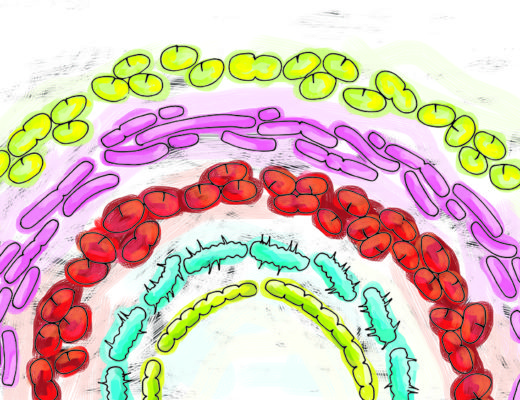Photo by Siora Photography
Why do some people have a tendency to gain weight while others remain stubbornly slim? Global obesity has nearly tripled over recent decades due to unhealthy eating habits and sedentary lifestyles, yet a few people can stay in perfect shape despite binging on junk food and never setting foot in a gym. Although it seems obvious genetics must play a role, only a handful of studies have addressed this question.
Now, researchers at the University of Cambridge (UK) have shown that healthy thinness is heritable and likely shares a common genetic basis with obesity.
Previous studies found hundreds of genes associated with high BMI (body mass index) and obesity, but thinness has mostly been ignored by geneticists. To figure out whether ‘skinny genes’ really do exist, Fernando Riveros-McKay and colleagues looked for differences between the DNA of severely obese and healthy, thin people. Then, they compared them with the DNA from people of normal weight (control group).
The thin people (experimental group) included only healthy individuals, meaning without any medical condition or eating disorders, and with a BMI lower than 18. So basically people who stay slim without needing to exercise or dieting. Yes, the lucky ones.
The researchers found that thinness, like obesity, is heritable- about three out of four people (74%) in the ‘thin’ experimental group had a family history of being thin and healthy. And intriguingly, several of the genes associated with healthy thinness were also linked to severe obesity, which raises the possibility that the same genes control both thinness and obesity.
It’s as though our weight relied mostly on a genetic lottery where we could either win a thin, normal, or overweight version of the same genes.
But does the genetic data confirm this hypothesis?
The short answer is yes, most likely. Statistical simulations showed that thinness and obesity might be “reverse sides of the same coin”, as the authors mention in the study, because thin people had fewer of the gene versions associated with being overweight. However, the team also found genetic differences between the extremes of the BMI scale- completely different genes are involved in thinness and obesity.
Does this mean the situation is hopeless for overweight people? Absolutely not. This study only included people with severe early onset childhood obesity, which is the genetic type. But most people become overweight or obese later in adult life because of their sedentary lifestyle and high-calorie diet.
Studies with twins and adopted children show that genes determine about 40% to 70% of the variation in body weight, so genetics is not decisive and is highly variable between individuals. A healthy weight can be achieved with a balanced diet and regular exercise, but some people may struggle a bit more to maintain their weight. Everyone is different.
The authors claim that future research using similar genomic approaches comparing thinness and obesity may pinpoint new genetic risk factors for obesity, which could potentially be new drug targets. Sadaf Farooqi, lead author in the study said in a press release:
Some people are just not that interested in food whereas others can eat what they like, but never put on weight. If we can find the genes that prevent them from putting on weight, we may be able to target those genes to find new weight loss strategies and help people who do not have this advantage.
Further reading:
Fernando Riveros-McKay et al. Genetic architecture of human thinness compared to severe obesity. (2019) PLOS Genetics
Allison DB et al. The heritability of body massindex among an international sample of monozygotic twins reared apart. (1996) Int J Obes Relat Metab Disord




